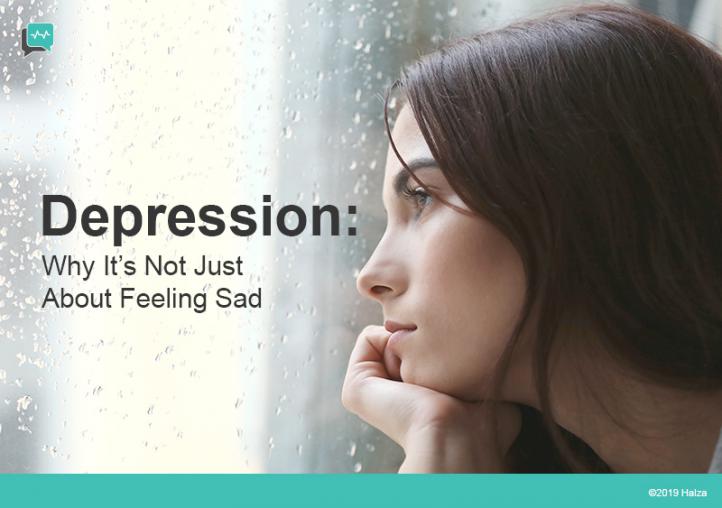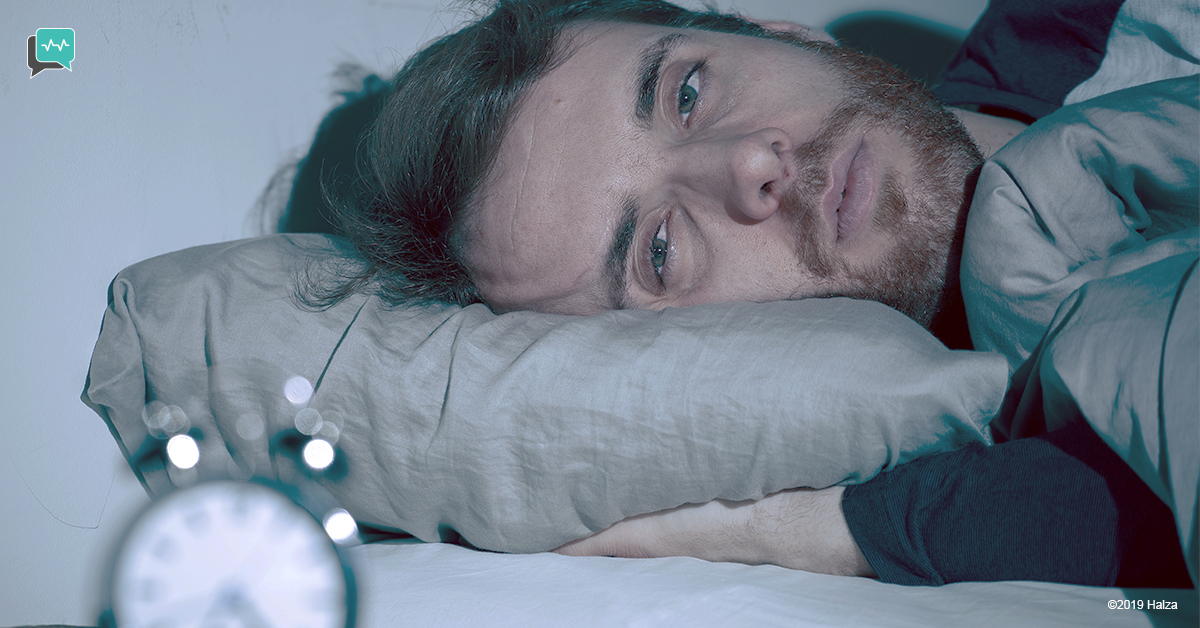Depression: A Silent Crisis

You might know that you can feel sad but not be depressed.
But did you know that you can be depressed and not feel sad?
Are “Depression” and “Sadness” almost the same thing?
No. Sadness is an emotion. We all experience feelings of sadness, usually for a limited amount of time, and related to a specific situation.
Depression (or “clinical depression” or “major depressive disorder”) is a diagnosable mood disorder.

A diagnosis of depression means that the person has had at least five of the following symptoms, all within the same two-week period:
- Diminished interest in or loss of pleasure in activities
- Significant and unintentional change in weight or appetite
- Difficulty sleeping or sleeping too much
- Fatigue or loss of energy
- Feelings of worthlessness, or inappropriate guilt
- Diminished ability to think, concentrate or make decisions
- Slower physical movements
- A suicide attempt, or recurrent thoughts of death or suicide – with or without a specific plan.
One of those symptoms must be a depressed mood or a loss of interest or pleasure. Also, the symptoms must cause significant distress to the person in important areas such as school or work. Suicidal thoughts are not required for a diagnosis of depression.
How common is depression?
At any given time 300 million people are experiencing depression.
Most of the 300 million people are going about their daily lives. On the outside, a person with mild or even moderate depression might not look or even act any different than usual.
Severe depression affects a person’s ability to function in their daily routine. It is usually noticeable to other people.
What does depression feel like in everyday life?
Everyone experiences depression differently. Some people describe it as experiencing life through a heavy, thick, hazy, gray filter.
- Previously enjoyable activities no longer provide pleasure.
- Minor inconveniences can cause irritability. Irritability is a common feature of depression.
- Thoughts might be jumbled, slow, or racing.
- Initiating an activity takes unusual effort.
- Everyday decisions, such as what to have for lunch, or which shirt to wear, feel overwhelming.
- People might feel worthless or have a sense of hopelessness. Other thoughts and feelings include self-doubt, inappropriate guilt, apathy, and suicidal ideation.
Before receiving a diagnosis, a person going through depression for the first time might feel as if they are “going crazy” or “losing it”, particularly if they have also developed anxiety. Depression and anxiety often occur together.
Both depression and anxiety are common medical conditions that can usually be well-managed. Having these conditions does not mean that the person is going crazy.
What causes depression?
Depression usually stems from a combination of causes. These include:
Biology
- Genetics. A person with a family history of depression may be more likely to become depressed.
- Chemical reactions and processes in the brain. Chemicals such as hormones and neurotransmitters can affect mood and the brain’s responses to stressful situations.
Many people with biological risk factors for depression never experience depression.
Childhood loss or trauma
People who had emotional trauma early in life may find that stressful events years later trigger similar feelings. It is important to recognize and understand past experiences to limit vulnerability to future depression.
Stress
Specific, unusually stressful situations (such as the death of a parent) affect people differently. After some time most people recover from the intense sadness and return to their normal lives. Sometimes that does not happen, and the stress or sadness can trigger a depressive episode.
Chronic stressors, such as financial worries, medical conditions, lack of resources, being a long-term caregiver, or poor housing situations can all contribute to depression.
Medical conditions
Many common medical conditions and certain medicines can cause symptoms such as fatigue, difficulty with physical functions, and irritability. These symptoms can feel similar to some symptoms of depression, However, unless the person has depression independent of the illness, the depressive symptoms go away when the medical condition is resolved.
Chronic medical conditions that affect a person’s day-to-day quality of life can be a trigger for depression
Other specific factors
Variations of depression such as Seasonal Affective Disorder and Postpartum Depression are triggered by specific circumstances in addition to the factors described above.
Can depression be treated?
Yes. Depression can’t always be cured, but it can usually be managed with treatment.
Because each person’s biology and circumstances are different, treatment must be tailored to the individual. If depression re-occurs, a change in treatment might be recommended. Treatments recommended by mainstream Western medical practitioners include:
- Medication: antidepressants can be a very effective treatment for depression, but they can take at least 2 weeks or more to be effective. You might need to try different ones before finding one that best works with your brain chemistry.
- Psychotherapy: recommended approaches include one-on-one talk therapy, cognitive behavioral therapy (CBT), interpersonal therapy, (IPT), and problem-solving therapy.
- Brain Stimulation Therapy: for depression that isn’t helped by medication and/or psychotherapy, new brain stimulation therapies have shown great promise.

- Exercise: it can, in some cases, improve symptoms of depression in the short term. Studies have not shown if exercise helps to prevent depression over the long term.
How can I help a depressed friend or relative?
Support from friends and family is very important. Depressed people often withdraw from social interactions. Make sure they know that you care about them and will still be there when they are ready to socialize. Other things you can do include:
- Leave voicemails or send a note telling them you are thinking of them.
- Try not to be judgmental. Things that seem simple, such as making the bed, might be too much for a depressed person. Accept that they are doing the best they can.
- If you are close with the person, offer to help with home chores.
- Offer to research local resources for the treatment of depression.

Be aware of signs of suicidal thoughts. Some signs include:
- Giving away possessions
- Taking unusual risks such as driving while drunk
- Talking about suicide or dying
- Wanting to be alone
- Buying a weapon or hoarding prescription medications
- Expressing that things seem hopeless
- Saying goodbye with unusual finality
Will depression go away on its own?
Some people do find that their mild depression eventually resolves by itself. However, we strongly recommend seeking professional help if possible. Treatment can shorten the course of depression and help to prevent recurrences.
The World Health Organization wisely states:
“Never be afraid to ask for help.
There is absolutely no shame in doing so.
The only shame is missing out on life.”
How Halza helps
Managing mental illness is just as important as managing a physical one.
If you’re on antidepressants or any other medication to treat depression, never miss a dose by setting medicine reminders on the Halza app. Keep track of what you need, how much, and when with ease. Show up to any appointments or check-ups on time by scheduling health reminders.
Having a close-knit social circle of family and friends to rely on can reduce the isolation of living with depression. Stay connected with those you care about with the Emoji Blast®. Get 500+ Hen emojis at your fingertips to start a conversation and convey how you feel without typing out a single word.
